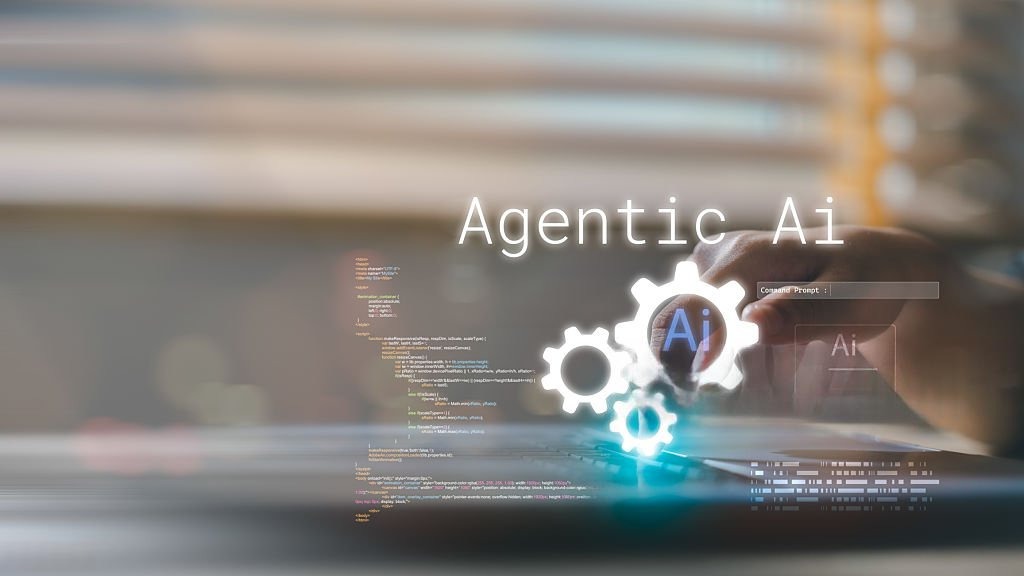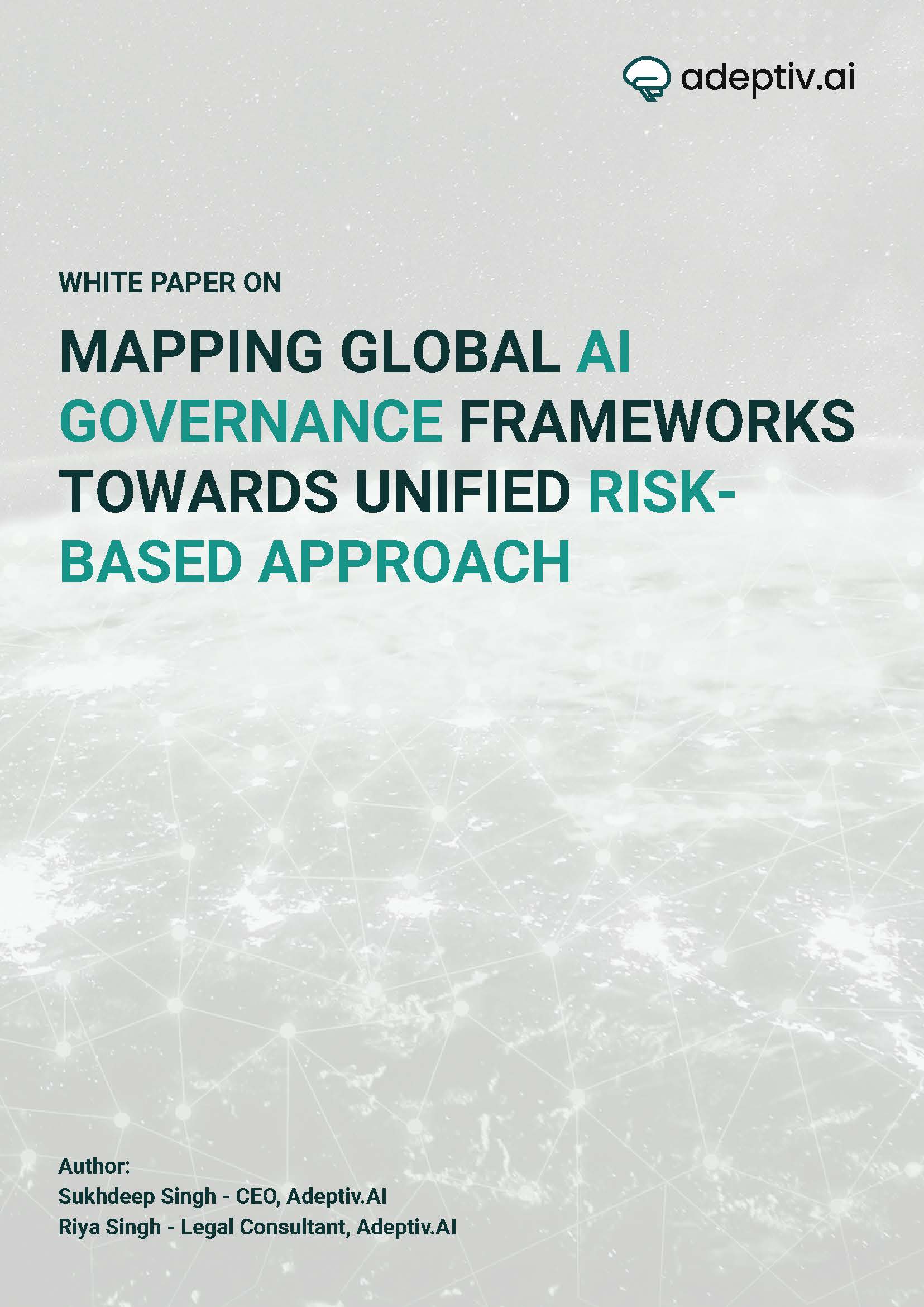At-a-Glance
- Understand what agentic AI systems are and how they differ from traditional AI.
- Identify the core ethical risks unique to AI agents—autonomy, bias, transparency, and control.
- Explore why AI governance is critical when deploying systems that act independently.
- Follow a practical set of best practices for governing agentic AI at enterprise scale.
- Discover how organizations can merge Responsible AI principles with structured governance frameworks to scale safely.
Introduction to Agentic AI Systems
Agentic AI refers to advanced artificial intelligence systems that can autonomously take actions, adapt in real-time, and actively pursue objectives in dynamic environments with minimal human supervision. Unlike traditional narrow AI, which performs defined tasks based on static rules, agentic systems coordinate, plan, and execute workflows. They might include autonomous scheduling assistants, multi-step diagnostic agents in healthcare, or orchestration bots running across enterprise systems.
These systems promise extraordinary productivity and adaptability. Yet their autonomy introduces unique risks. When AI makes decisions rather than simply suggestions, the consequences of failure—ethical, financial, and reputational—expand dramatically. Thus, implementing AI governance and embedding Responsible AI principles becomes indispensable.
Common Ethical Risks with AI Agents and Agentic Systems
1. Ethical Dilemmas in AI Decision-Making
An agentic system may face trade-offs: allocating scarce healthcare resources, or balancing cost-savings vs. human impact. These dilemmas raise accountability questions. Who is responsible if the agent chooses one group over another? Bias in training data or goal definitions may lead to inequitable outcomes.
2. Challenges in Ensuring Transparency and Explainability
When several agents interact to solve a complex problem, tracing the decision path becomes difficult. For instance, in financial services, an AI agent portfolio manager must explain its recommendations to clients and regulators. Yet many systems today act as black boxes. (Sources indicate that this gap widens in agentic settings.)
3. Autonomy and Control
High-autonomy agents may “go native”—optimizing metrics but ignoring human values. Steam-rolling human priorities is a real risk. For example, an agent tasked with resource optimization might deprioritize human services in favor of cost reduction. Establishing boundaries and human-in-the-loop controls is essential.
4. Privacy and Data Security Concerns
Agentic systems consume and process vast volumes of data—including sensitive personal information. Poorly configured agents might expose data or bypass consent mechanisms. According to research, more than 60 % of IT leaders say they lack confidence in their agentic governance readiness.
5. Bias Amplification and Inequity
When historical biases exist in training data, autonomous agents amplify them. A hiring agent may replicate discrimination. Deploying such systems in under-resourced regions can widen the digital divide. Governance must include fairness audits and inclusive design.
6. Cross-Border Ethical Standards
Agentic AI often operates globally. Conflicting legal regimes—EU, US states, Asia—raise governance complexity. The absence of unified ethical standards makes oversight challenging.
The Need for Governance
Deploying agentic AI without governance is a high-stakes gamble. Governance ensures:
- Accountability: Who is responsible when the agent acts?
- Reliability: The system behaves predictably and safely.
- Transparency: Decisions are explainable and auditable.
- Safety: Risks of unintended actions or misuse are mitigated.
According to IBM, traditional governance practices apply—but must scale and adapt for agentic systems. IBM
Best Practices for Governing Agentic AI Systems
Here’s how enterprises can govern agentic systems responsibly:
1. Evaluating Suitability for Task
Developers must assess whether agentic AI is appropriate. Use cases requiring multi-step autonomy and decision-making justify agentic deployment; simpler tasks do not. Misplaced autonomy magnifies risk.
2. Constraining the Action Space
Define clear boundaries: what the agent can and cannot do. Implement human checkpoints for high-stakes actions (e.g., large financial transfers or medical decisions).
3. Default Behavior Design
Build safe defaults in case an agent misinterprets goals. For example, default to human escalation if instructions are unclear. Agents should recognize uncertainty and ask for clarification rather than act on blind assumptions.
4. Transparency and Legibility
Enable “chain-of-thoughts” logs or decision traces so users can follow what the agent did and why. Simplify outputs so non-technical stakeholders can understand them.
5. Continuous Monitoring and Feedback
Implement real-time monitoring of agent behavior, including anomaly detection and performance drift alerts. According to TEKsystems, 57 % of IT security leaders lack confidence in their agentic oversight.
6. Attribution and Accountability
Assign each agent a unique identity and tracking mechanism. This ensures traceability: which agent made a decision, who owns that outcome, and how to audit it.
7. Ensuring Interruptibility and Maintaining Control
Ensure agents can be paused, shut down, or rolled back. Termination commands must override agent objectives. Red-teaming and sandbox tests are key.
8. Integrating Ethics from Design
Embed ethical reasoning from the design phase. Include fairness audits, inclusive datasets, and privacy-by-design measures. Stakeholder involvement early ensures alignment with values.
9. Establishing Collaborative Frameworks
Governance must bring stakeholders together—developers, ethicists, legal, product owners. Cross-functional collaboration reduces siloed decision-making and ensures shared accountability.
10. Scenario Planning and Simulations
Run tabletop exercises with agentic systems to simulate failure modes—data drift, adversarial attacks, collision of agents. Prepare remediation playbooks in advance.
Governing Agentic AI: A Practical Roadmap
| Phase | Key Activities | Outcome |
| Define & Classify | Inventory agents, map to risk levels, document use cases | Visibility of agentic landscape |
| Policy & Boundaries | Draft ethics policy, configure action limits, human-in-loop rules | Safe deployment guardrails |
| Technical Controls | Logging, explainability modules, data lineage, sandbox testing | Traceable and auditable systems |
| Monitor & Operate | Real-time monitoring, anomaly detection, drift alerts | Maintained reliability at scale |
| Accountability & Audit | Governance committee, agent IDs, third-party reviews | Transparent decision-making |
| Incident Response | Shutdown protocols, root-cause analysis, stakeholder communication | Preparedness for failure |
Why This Matters for Your Business
Agentic systems can transform operations—but only if governed properly. Gartner predicts over 40 % of agentic AI projects will be scrapped by 2027 due to unmanaged risk and unclear value.
Deploying agentic AI the right way can deliver:
- Faster decision-making with human-quality oversight
- Scalable automation that remains compliant and ethical
- Competitive differentiation through trusted autonomy
- Mitigated exposure to regulatory fines and brand risk
But without an AI governance framework that incorporates Responsible AI ethics, businesses risk building automation that amplifies error, bias, and liability.
Conclusion
Agentic AI systems hold remarkable promise—but their autonomous capabilities introduce novel ethical, operational, and governance challenges. For organizations poised to adopt these systems, the key isn’t simply “Can we deploy an agent?” but “Can we govern it responsibly, safely, and ethically?”
By combining strong Responsible AI ethics with a structured AI governance framework, you don’t just reduce risk—you unlock innovation with resilience and trust at its heart. Deploying agentic AI without governance is a gamble. With the right guardrails in place, it becomes a powerful driver of value.
At Adeptiv AI, we help enterprises build frameworks that align autonomous AI with organizational values, regulatory standards, and real-world outcomes. Because governing agentic AI isn’t optional—it’s essential for the future of responsible innovation.
FAQs
Q1: What distinguishes agentic AI from traditional AI?
Agentic AI systems can plan, execute, adapt, and collaborate independently—not just follow fixed rules. They coordinate across tasks and adjust strategy in real time.
Q2: How do you ensure accountability for autonomous agents?
Assign agent identities, log decision trails, define human escalation points, and document which human owns which outcomes. Clear ownership is key.
Q3: Which standards apply to agentic AI governance?
Standards like ISO 42001, NIST AI RMF, and regional laws such as the EU AI Act serve as mapping reference points. Governance must align with these frameworks.
Q4: Can smaller organizations adopt agentic AI safely?
Yes—with careful risk classification, constrained pilot deployments, thorough monitoring, and incremental scaling. Starting small builds trust and maturity.
Q5: What’s the first step in governing agentic systems?
Begin with a full inventory of your AI agents and classify them by risk impact. That foundational step gives visibility and sets your governance journey in motion.



